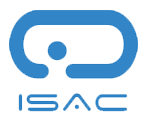
Information Sharing and Analysis Center
- ISAC
- Certifications
- Foundation
- Technical
- ISAC Certified Penetration Tester (ICPT)
- ISAC Certified Forensics Investigator (ICFI)
- ISAC Certified Bug Bounty Researcher (ICBBR)
- ISAC Certified Identity and Access Management Course (ICIAM)
- ISAC Certified Open Source Intelligence Analyst (ICOSA)
- ISAC Certified SOC Analyst (ICSA)
- ISAC Certified Threat Hunter (ICTH)
- ISAC Certified Reverse Engineer (ICRE)
- ISAC Certified Malware Analyst (ICMA)
- ISAC Certified IOT Security Professional (ICIP)
- Certified Professional for Airport IoT Security (CPAIS)
- Management
- NASSCOM FSP
- National Security Database
- Register
- Centers
- What We Do
- Events
- Members Portal
